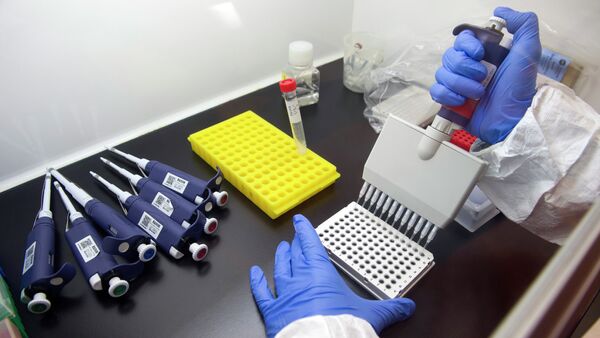ISE-SHIMA (Japan), (Sputnik) – The recent Ebola outbreak claimed the lives of over 11,000 people, according to WHO estimates.
UN Secretary General Ban Ki-moon has warned that Ebola virus flare-ups would happen in 2016 despite the fact that all known chains of Ebola transmission had been stopped in West Africa.
"Learning lessons from the Ebola outbreak, especially through the wisdom offered by a wide-range of experts across the globe, including the work of the UN High-Level Panel on the Global Response to Health Crises, we recognize that health systems need to be resilient," the G7 leaders said in a joint declaration on Friday.
According to the declaration, the G7 leaders have instructed their respective Health Ministers to elaborate on the measures which must be taken to improve how the world responds to public health emergencies the upcoming September meeting in Kobe, Japan.
"Prompt and effective responses to public health emergencies will also require World Health Organization (WHO) reforms, funding mechanisms that enable speedy disbursement for prompt response, coordinated implementation of action among relevant stakeholders and systems, and better implementation of the International Health Regulations (IHR)," the G7 leaders stressed.
According to the G7, the Ebola outbreak, which started in Guinea in December 2013 and subsequently spread to neighboring countries, turned into a major epidemic partly due to a lack of prompt action among relevant stakeholders.
"We reaffirm the WHO’s central role…to enable and support more swift, effective and coordinated responses to public health emergencies. In this light, we urge and support the WHO to implement its emergency and wider reforms, including its One WHO approach across the three levels of the Organization, namely its headquarters, regional and country offices, in a timely manner," the G7 leaders said.
They also highlighted the importance of the adequate and timely distribution of financial resources necessary to respond to public health emergencies.



